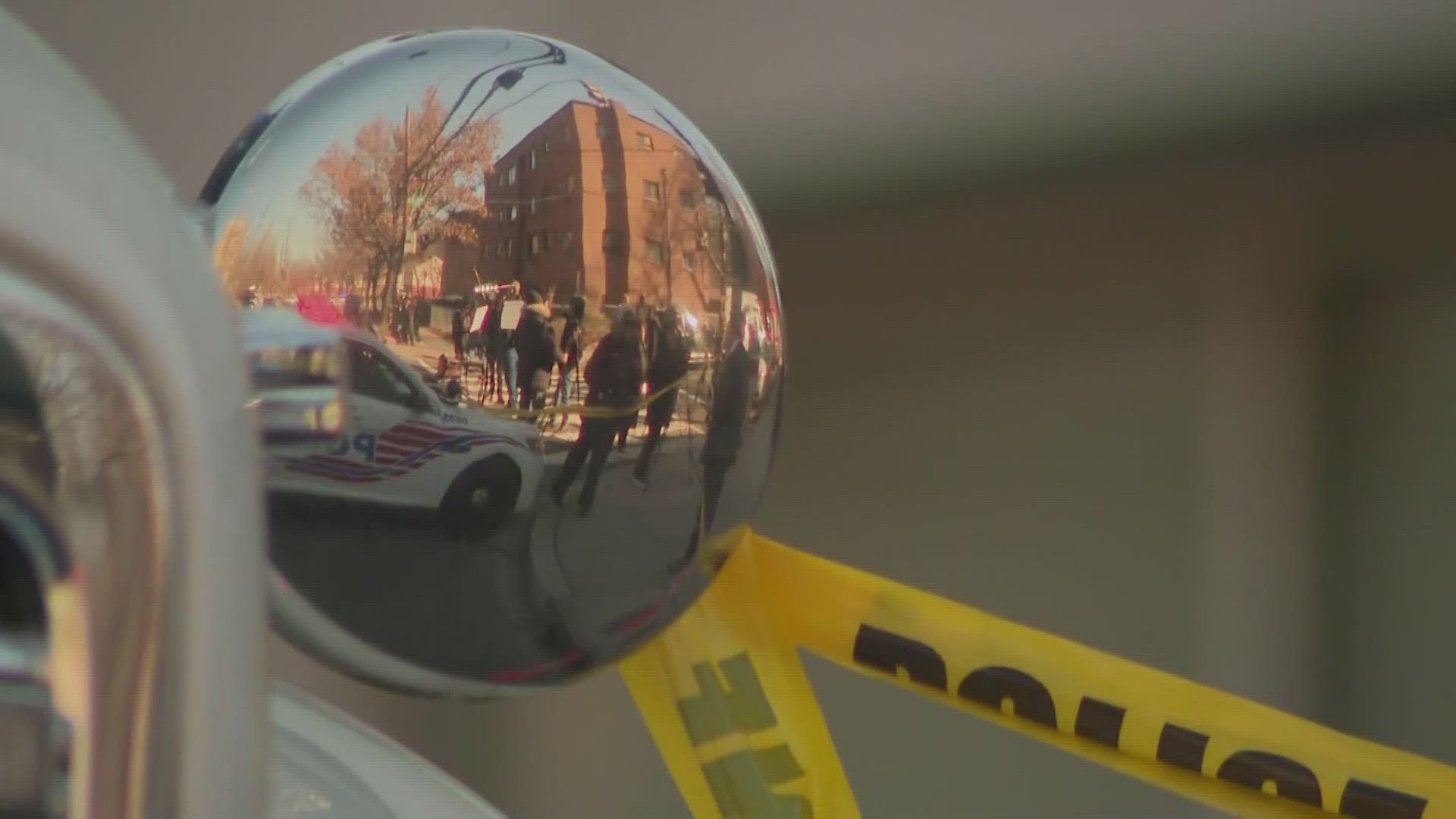WASHINGTON — Crime continues to be top of mind for people living, working, and visiting DC. There’s a last-minute push to pass the massive crime bill that hopes to turn things around. But expect opponents to push back, because the bill's sponsor is trying to reverse a vote from her colleagues during the first vote for the Secure DC Omnibus.
“I was extremely disappointed that this provision was amended out,” CM Brooke Pinto said during Chairman Phil Mendelson’s weekly Monday legislative briefing. “People are clamoring for us to do more to keep them safe.”
One day before the Council’s final vote on the bill, the chair of the Judiciary and Public Safety Committee introduced an amendment returning the provision calling for DNA collection upon felony arrest. Last month, the crime package passed its first vote almost unanimously (Ward 8 Councilmember Trayon White marked himself present). However, there were several amendments including on the issue of DNA collection when someone’s arrested for a felony and not charged.
Opponents including Councilmember At-Large Kenyan McDuffie called it a violation of civil rights and the presumption of innocence. CM McDuffie sponsored the amendment striking the provision. Now, CM Pinto wants to put that provision back in but this time adding that a judge will have to first decide if there is probable cause.
“This is particularly a women's rights issue, 39% of women in DC experience sexual assault sometime in their lives and women are 14 times more likely to be a victim of rape or sexual assault,” CM Pinto explained. “To not allow the District to ensure that we have all the tools available to prevent repeat offenders is irresponsible and I will be fighting to get back in.”
US Attorney Matthew Graves penned an opinion piece in the Washington Post calling it a “common sense measure” that he urged the Council to return. Graves said DNA collected and stored by the FBI database will help solve crimes and prevent future ones.
“All they (FBI) are looking at is a small fraction that is available of someone’s DNA, the information they use, you can’t tell anything about a person’s national origin or anything like that,” explained Graves. “There are rules on who can access there are rules about removing if someone is acquitted of the conduct for which they’re charged. So, they’re all kinds of provisions you can put in place to address those concerns.”
According to Pinto’s amendment, “any DNA samples collected, and records of DNA analyses generated under this section shall be destroyed and expunged automatically.” But it does not specify how.
“If they’re saying there are guardrails about collecting, there also should be strict guardrails in the bill that outline what will happen with expungement and how people will actually be able to claw that back from the federal system,” countered Melissa Wasser Policy Lead for the ACLU-DC, “doing this in the 11th hour upon the second vote, again, won't make DC safer. And so, we hope that councilmembers will stick to their first vote, led by Councilmember McDuffie, and hold the line.”
WUSA9 reached out to CM McDuffie for this story, but no one returned our calls.
The second and final vote is scheduled for Tuesday March 5.
“We have many a lot of changes over the last several weeks to account for colleagues' concerns and great ideas they had had,” said Pinto.
Council Chairman Phil Mendelson said the bill is on the non-consent agenda as an emergency bill to bypass the 60-day Congressional review period following the Mayor’s signature.
Mendelson said he expects an amendment regarding punishment of people who take advantage of senior citizens and move into their homes taking it over to engage in criminal behavior.

